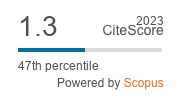Social Cooperatives' Ways of Operation Activity in Poland — Some Features of Theory and Practice
DOI:
https://doi.org/10.2478/v10103-010-0003-xAbstract
The social cooperative is one the newest organizational-legal forms of social enterprise. Its growth is caused by many determinants. One of them is the necessity of the prevention of social exclusion. Social cooperatives’ exceptionality is reflected in simultaneous realization of economic and social purposes but social goals owns the preference character. The paper is composed of three parts. Its first part contains deliberations about the concept itself and objectives of the social cooperative. They are presented against a wider background of human and social capital creation by enterprises. The second part deals with social and economic characteristics of the social cooperative. Finally, the third part contains fragmentary findings of empirical studies focused on the operation of social cooperatives in Poland. These findings cannot be treated, however, as sufficient to consider them a satisfactory recapitulation, and for this reason they should be treated as a preliminary diagnosis of analyzed problems accompanying the operation of social cooperatives in Poland.
Downloads
References
Backman E., Smith S. R. (2000), Healthy organizations, unhealthy communities?, ‘Nonprofit Management & Leadership’, vol. 10, no. 4
Google Scholar
Brower H. H., Schoorman F. D., Tan H. H. (2000), A Model of Relational Leadership: The Integration of Trust, and Leader Member Exchange, ‘Leadership Quarterly’, no. 11
Google Scholar
Coleman J. S. (1998), Social capital in the creation of Human Capital, ‘American Journal of Sociology’, vol. 94, supplement
Google Scholar
Davies J. H., Schoorman F. D., Donaldson L. (1997), Toward a Stewardship Theory of Management, ‘Academy of Management Review’, vol. 22, no. 1
Google Scholar
Dart R. (2004), The Legitimacy of Social Enterprise, ‘Nonprofit Management & Leadership’, vol. 14, no. 4
Google Scholar
Duraj J. (2008), Miejsce i rola spółdzielni socjalnej w rozwoju społecznym, [in:] Sławomir Partycki (ed.), Kultura a rynek, vol. 2, Wydawnictwo KUL, Lublin
Google Scholar
Ford R. (1999), Developing Social Capital, ‘Human Resources Professional’, no. 26(6)
Google Scholar
Journal of Laws 2003, no. 96, item 873
Google Scholar
Journal of Laws 2005, no. 155, item 1298
Google Scholar
Journal of Laws 2005, no. 169, item 1420
Google Scholar
Journal of Laws 2005, no. 175, item 1462
Google Scholar
Journal of Laws 2005, no. 249, item 2104
Google Scholar
King N. K. (2004), Social Capital and Nonprofit Leaders, ‘Nonprofit Management & Leadership’, vol. 14, no. 4
Google Scholar
Mancino A., Thomas A. (2005), An Italian Pattern of Social Enterprise. The Social Cooperative, ‘Nonprofit Management & Leadership’, Spring, vol. 15, no. 3
Google Scholar
OECD (2003), The non–profit sector in a changing economy, OECD, Paris
Google Scholar
Prusak L., Cohen D. (2001), How to Invest in Social Capital, ‘Harvard Business Review’, June
Google Scholar
Putnam R. D. (1995), Demokracja w działaniu. Tradycje obywatelskie we współczesnych Włoszech, Społeczny Instytut Wydawniczy Znak, Kraków, Fundacja im. Stefana Batorego, Warszawa
Google Scholar
Tosi H. L., Brownlee A. L. , Silva P., Katz J. P. (2003), An empirical exploration of decisionmaking under agency controls and stewardship structure, ‘Journal of Management Studies’, no. 40
Google Scholar
Downloads
Published
How to Cite
Issue
Section
License

This work is licensed under a Creative Commons Attribution-NonCommercial-NoDerivatives 4.0 International License.










